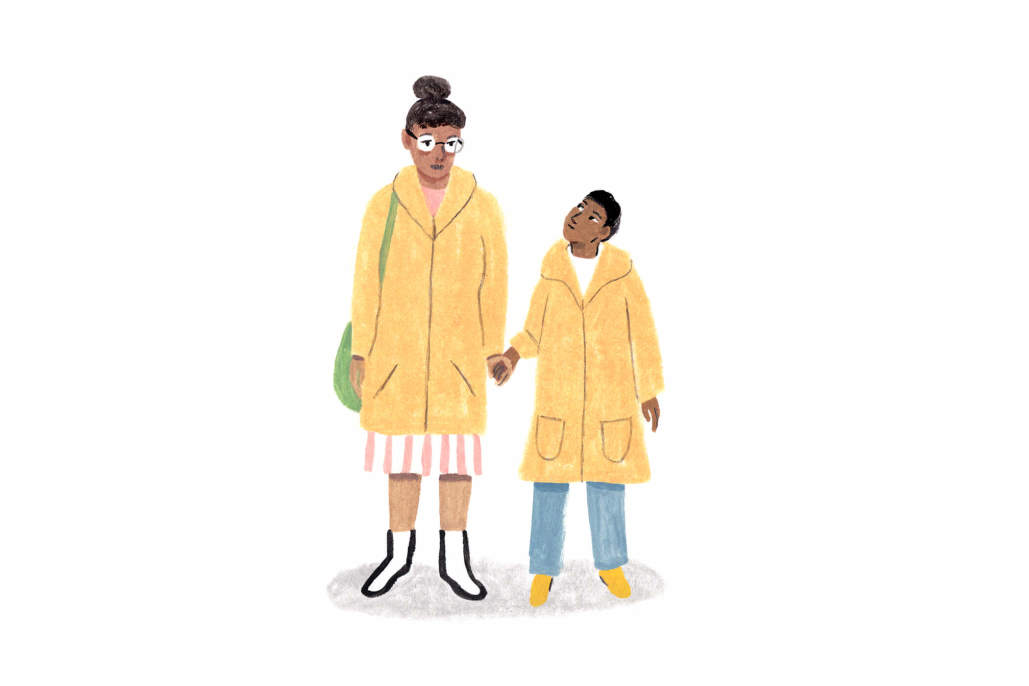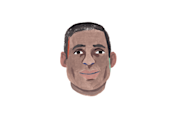Every parent wants the best for their child and ensuring their health and safety is top of the list. And while mental and behavioral health is rarely the first thing on our minds—that’s reserved for feeding them and keeping them alive—a child’s development into a fully formed person happens day by day, week by week, month by month, year by year.
Inevitably there are stages and particular behaviors along the way that cause concern.
First-time parents especially can have trouble determining what’s a natural and temporary quirk of growing up or something that calls for professional intervention.
If you have noticed some behavioral changes in your child that concern you, consider taking this 3-minute quiz intended for children ages 4-16. It's based on the The Pediatric Symptom Checklist (PSC-17), a clinically-validated tool used to identify behavioral problems in children.
Mental illness in children
The CDC defines childhood mental disorder as “all mental disorders that can be diagnosed and begin in childhood (for example, attention-deficit/hyperactivity disorder or ADHD, Tourette’s syndrome, behavior disorders, mood and anxiety disorders, autism spectrum disorders, substance use disorders, etc.).”
While some of the more widely discussed disorders are easily identified and diagnosed in younger children, studies show that more hidden illnesses such as depression, schizophrenia and other illnesses are often not addressed via professional treatment until an average of 11 years after onset.
These delays between onset of symptoms (many of which begin in a person’s teens or earlier) and actual treatment showcases how widely misunderstood mental illness can be in children and teens, and how important it is to prioritize mental health as part of overall well-being and healthy development.
How do I know if my child has a mental illness? What are the signs of a troubled child?
It's not always easy to tell the difference between normal childhood behavior and symptoms of mental illness. There is no simple test that can establish whether someone has a mental illness.
Although each illness has its unique set of symptoms, the following are some of the most common signs of mental illness in children and teens:

The symptoms—and warning signs—of mental illness in children and teens can vary widely. According to the NAMI (the National Alliance on Mental Illness), if you notice any of the behaviors below, it’s probably a good idea to consult with your healthcare provider to look into the issue further.
Possible symptoms of mental illness in adolescents and teens
These are the warning signs of mental illness in teens that parents should be aware of:
Excessive worrying or fear
Feeling excessively sad or low
Confused thinking or problems concentrating and learning
Extreme mood changes, including uncontrollable “highs” or feelings of euphoria
Prolonged or strong feelings of irritability or anger
Avoiding friends and social activities
Changes in sleeping habits or feeling tired and low energy
Changes in eating habits such as increased hunger or lack of appetite
Difficulty perceiving reality (delusions or hallucinations, in which a person experiences and senses things that don't exist in objective reality)
Overuse of substances like alcohol or drugs
Multiple physical ailments without obvious causes (such as headaches, stomach aches, vague and ongoing “aches and pains”)
Thinking about suicide
Inability to carry out daily activities or handle daily problems and stress
An intense fear of weight gain or concern with appearance
Possible symptoms of mental illness in children
In young children, the most obvious symptoms are behavioral and mental illness include the following:
Changes in school performance
Excessive worry or anxiety, for instance fighting to avoid bed or school
Hyperactive behavior
Frequent nightmares
Frequent disobedience or aggression
Frequent temper tantrums
My child seems depressed. What should I do?
Start with your pediatrician. They can look for any underlying nutritional or physical problems that may be causing unusual behaviors in your child. It also doesn’t hurt to check with teachers or others who spend a significant amount of time around your child to see if they’ve observed anything that could be tied to an underlying cause or trigger if the behavior comes and goes.
Grief counseling for children and teens
When the trigger for excessive sadness or anger in your child or teen can be traced to the recent loss of a loved one, such as a grandparent or pet, it doesn’t hurt to talk to a mental health professional. Grief counselors are a good resource for the entire family, and can help both you and your children process the big and often conflicting emotions that follow a death or loss.
They can provide tools and positive coping behaviors, and to help you know what to expect in you and your children’s grieving process, including how long changes in behavior might last, and ways to talk about grief with young children and teens.
Trauma counseling for children and teens
While many parents’ concerns may be about “under-the-radar” issues such as depression or anxiety—or overt instances of acting out like substance abuse—if your child suddenly experiences a distinct trauma, such as a car accident or witnessing an assault, it’s worth scheduling time with a professional—even if your child isn’t showing obvious symptoms.
It’s important to remember that even being witness to violence, whether in person or on a screen, can trigger powerful emotional responses and detrimental behaviors in children. The Child Witness to Violence Project at Boston Medical Center reports that media violence is the most common exposure to violence among children in this country.
For in-depth lists of types of child trauma, treatment options and other resources if you have concerns about a child or teen who may have been exposed to, or is undergoing, trauma, the National Child Traumatic Stress Network (NCTSN) offers useful information and tools.
Learning about child trauma and mental illness is important, but ultimately, the most successful outcomes are a result of treatment and support from a mental health professional in partnership with parents and other family members in the child’s life.
Finding a professional who is well-versed in trauma-informed systems and care is essential. And not just for children—anyone who has post-traumatic symptoms should work with a mental health professional who has experience treating trauma.
Is child suicide something I should be concerned about as a parent?
It’s a sensitive topic, but one that does deserves more attention. Suicide is the second leading cause of death for children and young adults age 15-to-24. To put this in context, for all ages, it’s the tenth leading cause of death in the U.S.

While most doctors and therapists will attest that many of the things parents worry about turn out to be temporary and typical developmental changes, it’s important to note that the rates of suicide among youth aged 10 to 24 has risen by 56% in recent years, from 6.8 deaths per 100,000 people to 10.6 deaths. For Black youth, the rate increased even higher, by 73%.
Warning signs and risk factors
The Society for Suicide Prevention lists risk factors and warning signs for suicide on their site, along with other useful statistics and resources. Risk factors include health, environmental, and historical factors, while warning signs are identified in talk, behavior, and mood of the person in concern.
With children and teens in particular, warning signs—and reasons to get in touch with a healthcare provider right away—include:
Looking for a way to end their lives, such as searching online for methods
Withdrawing from activities
Isolating from family and friends
Visiting or calling people to say goodbye
Giving away prized possessions
Aggression
Fatigue
Again, any dramatic or sudden changes in your child’s behavior, prolonged mood swings, and other erratic behavior or speech is worth noting and talking about with your child’s doctor. Seeking help on your own can be helpful as well.
Though most mental health professionals are versed in family dynamics, finding a specialist in parent-child relationships can be helpful for the entire family, even if you as a parent are the only one to attend a session.
Should we go to family therapy?
Another option is family therapy. Marriage and family therapists (MFTs) are trained to deal with complex family dynamics. This can help address some of the root causes in your family system that may be causing behavioral problems in your child.
Ideally, you as a parent can also gain tools to improve family dynamics and to help you and your child cope with difficult situations and even common household stressors.
Family therapy is also highly effective in treating children’s mental health disorders. Treatment tends to involve bringing parents into sessions and teaching positive parenting techniques. Researchers have found that family therapy can be useful in improving treatment outcomes for a range of mental illnesses and disorders in children, from anxiety disorders to schizophrenia.

What should I expect from visiting a child psychologist?
Depending on your specific concern, and whether you are seeing a family therapist, psychologist, or other medical professional trained in neurological disorders or mental illness, the first visit could entail a physical exam or educational evaluation, or both. Activities might be part of the session, especially for younger children who are better able to express themselves through play.
Whatever the nature of the exam and your reason for seeking help for your child from a mental health professional, it is most important to be honest with your child about where you are taking them. Reassure them that they will be safe.
With young children, bringing a loved stuffie or toy along for comfort is accepted and encouraged. With teens, it’s important to let them know that their privacy will be respected, and that they are free to share openly with the clinician.
Your healthcare provider should also give specific ideas about what to bring and what to expect before the first session, and you should feel comfortable asking them in advance how to help your child feel comfortable.
Resources for parents and caregivers; Types of therapy for children and teens
Don’t be afraid to explore your own role in your child’s mental well-being as well. The American Society for the Positive Care of Children (American SPCC) offers resources on positive parenting, which teaches healthy ways to be attentive, consistent, and accountable for modeling and encouraging effective emotional regulation and coping behaviors.
Many common counseling techniques and types of therapy treatments for adults are also useful for the entire family. Learning about treatments and behavioral tools such as Cognitive Behavioral Therapy (CBT), EMDR, and forms of music, art and play therapy can be beneficial for parents and caregivers.
Finally, developing a mindfulness practice for yourself, and helping your children to do the same, has been shown to have positive outcomes for the entire family.

Know that you are not alone in wanting the best for your child, and exploring options, additional resources, and expert advice to ensure their psychological safety and overall well-being of your entire family is absolutely a good thing. Talking to other parents, or your own therapist or counselor, can be helpful.
But most of all, talking to your child, and being an active listener and participant in their own life, goes a very long way in building a secure, healthy and lasting foundation to help them weather whatever stressors or challenges life may throw their way.
American Foundation for Suicide Prevetion (AFSP). (Accessed 2020, October 11). Risk Factors and Warning Signs. https://afsp.org/risk-factors-and-warning-signs
Santhanam, Laura. (2019, October 18). Youth Suicide Rates are on the Rise in the U.S. PBS News Hour. https://www.pbs.org/newshour/health/youth-suicide-rates-are-on-the-rise-in-the-u-s
American Foundation for Suicide Prevetion (AFSP). (Accessed 2020, October 11). Risk Factors and Warning Signs. https://afsp.org/risk-factors-and-warning-signs
Chamberlin, J. (2005, December) Family therapy enhances treatment for children’s mental disorders. American Psychological Association. Vol. 36, No.12). https://www.apa.org/monitor/dec05/disorders
Child Mind Institute. (2020). Preparing your child. https://childmind.org/our-care/for-patients/preparing-for-your-first-visit/preparing-your-child/
Centers for Disease Control and Prevention (CDC). (2018, July 26). National Vital Statistics Reports. https://www.cdc.gov/nchs/products/nvsr.htm
Duncan, Larissa G.; Coatsworth, J. Douglass; Greenberg, Mark T. (2009, May 2). A Model of Mindful Parenting: Implications for Parent-Child Relationships and Prevention Research. Clinical Child and Family Psychology Review. https://www.ncbi.nlm.nih.gov/pmc/articles/PMC2730447/
Santhanam, L. (2019). Youth suicide rates are on the rise in the U.S. PBS News Hour. https://www.pbs.org/newshour/health/youth-suicide-rates-are-on-the-rise-in-the-u-s
Wang, P. S., Berglund, P. A., Olfson, M., & Kessler, R. C. (2004). Delays in initial treatment contact after first onset of a mental disorder. Health services research. Health services research, 39(2), 393–415.
Mayo Clinic. (2020, February 26). Mental Illness in Children: Know the Signs. https://www.mayoclinic.org/healthy-lifestyle/childrens-health/in-depth/mental-illness-in-children/art-20046577
National Alliance on Mental Illness. (Accessed 2020, October 11). About Mental Illness: Warning Signs and Symptoms. https://www.nami.org/About-Mental-Illness/Warning-Signs-and-Symptoms
Boston Medical Center. (Accessed 2020, October 11) Child Witnessing Violence: Guide for Parents. https://www.umassmed.edu/globalassets/child-trauma-training-center-cttc/documents/psychoed-library/domestic-violence/child-witnessing-violence_parents_guide.pdf
National Institute of Mental Health (NIMH). (2020). Post-Traumatic Stress Disorder. https://www.nimh.nih.gov/health/publications/post-traumatic-stress-disorder-ptsd/index.shtml
Centers for Disease Control and Prevention (CDC). (2018, July 26). National Vital Statistics Reports. https://www.cdc.gov/nchs/products/nvsr.htm
American Society for the Positive Care of Children (American SPCC). (Access 2020, October 11). Positive Parenting. https://americanspcc.org/positive-parenting/














